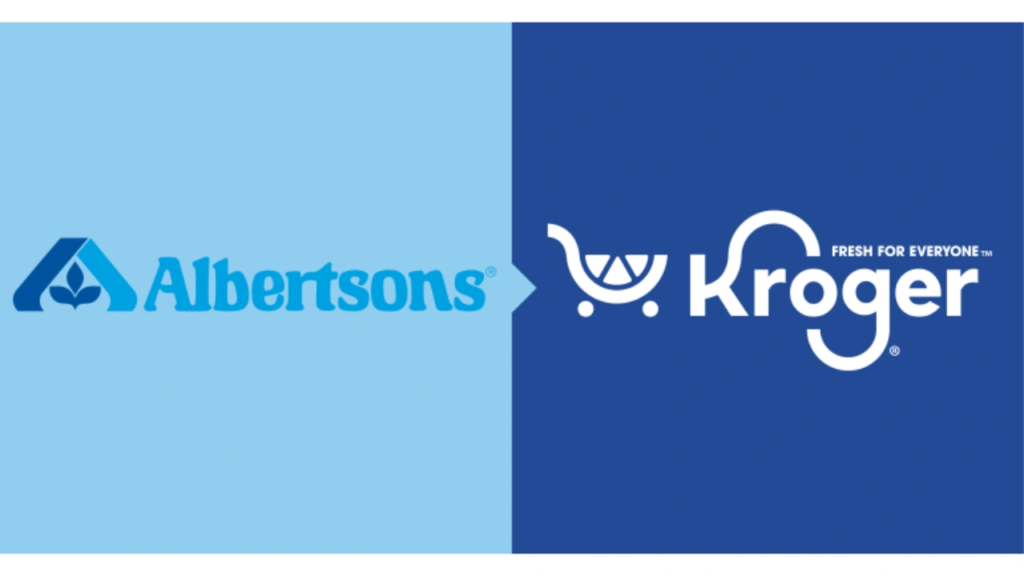The proposed Kroger-Albertsons merger has hit a massive roadblock. This $25 billion deal, touted as the largest grocery merger in U.S. history, faced a double blow from federal and state courts, both citing concerns over reduced competition. The decision represents a significant win for federal regulators and consumer advocates worried about potential impacts on prices, wages, and market dynamics. Let’s dive into what’s happening and why it matters.
What Happened?
Within hours, two court rulings blocked the merger. First, Judge Adrienne Nelson of the U.S. District Court in Oregon issued a preliminary injunction, citing the Federal Trade Commission’s (FTC) argument that the merger would harm consumers and workers by reducing competition. Then, a Washington State judge followed suit, highlighting similar concerns.
The FTC’s lawsuit argues that Kroger and Albertsons are significant competitors and that merging them would eliminate this direct rivalry, ultimately leading to higher prices and fewer choices for consumers. Judge Nelson’s decision labeled the merger as “presumptively unlawful,” putting the deal’s future in jeopardy.
Why Was the Merger Proposed?
Kroger and Albertsons—two of the largest grocery chains in the U.S.—claimed that merging would help them compete against retail giants like Walmart and Amazon. These behemoths, with their vast resources and economies of scale, have been making life increasingly difficult for traditional grocery chains.
Kroger’s CEO, Rodney McMullen, argued that the merger would create a stronger competitor to non-unionized giants like Walmart and Costco. He promised a $1 billion investment in lowering grocery prices post-merger. However, critics weren’t convinced.
The Court’s Rationale
Judge Nelson’s ruling dismissed Kroger’s claims, stating that traditional supermarkets operate in a distinct market. She argued that Walmart, Amazon, and other broad-range retailers aren’t direct competitors in the same way that Kroger and Albertsons are. By eliminating competition between these two grocery chains, the merger could lead to price hikes for consumers.
Additionally, the court questioned the companies’ plan to divest 579 stores to C&S Wholesale Grocers as a way to mitigate competition concerns. Judge Nelson and the FTC found this solution inadequate, describing C&S as poorly equipped to compete with a combined Kroger-Albertsons entity.
Impact on Grocery Prices
The backdrop to this merger is the rising cost of groceries, which has been a significant burden for many Americans. Food inflation has hit hard, and critics of the merger—including unions, small grocers, and bipartisan members of Congress—feared that consolidating two major players would exacerbate the issue.
Senator Elizabeth Warren and Senator Mike Lee were among those who vocally opposed the deal. The FTC’s lawsuit explicitly warned that higher prices and lower wages would result if the merger went through.
Independent Grocers Face Challenges
Small, independent grocery stores have been struggling for years against larger chains. They argued that the Kroger-Albertsons merger would increase the merged entity’s leverage over suppliers, making it even harder for smaller stores to compete. Consolidation in the grocery sector is not new, but its pace is accelerating. In 2019, the 20 largest retailers controlled 64% of total food sales, more than double their share in 1990.
The FTC’s Role in Blocking the Deal
This case is part of a broader effort by the FTC under outgoing chair Lina Khan to enforce stricter antitrust regulations. The commission has been taking on tech giants like Google and Amazon, and its action against the Kroger-Albertsons merger is seen as a landmark moment in antitrust enforcement. Judge Nelson’s ruling aligned closely with the FTC’s stance, signaling robust scrutiny of future mergers across industries.
What Happens Next?
While the courts have temporarily paused the merger, Kroger and Albertsons still have options. They could appeal the rulings or pursue the FTC’s administrative process to seek approval. However, these hurdles make it increasingly likely that the companies might abandon the deal altogether.
Judge Nelson clarified that her injunction does not force the companies to scrap the merger; it merely pauses the process until further review. But with state-level rulings like the one in Washington and a pending challenge in Colorado, the path forward is fraught with obstacles.
The Bigger Picture: Grocery Sector Trends
The grocery industry is undergoing significant changes. Traditional supermarkets are losing ground to big-box retailers and discount chains like Aldi, which continues to grow rapidly. Consumers are also shifting toward online grocery shopping, further altering the competitive landscape.
Mergers like this one are a response to these pressures, as companies seek to scale up and remain competitive. However, such moves often raise questions about their impact on consumers, workers, and smaller competitors.
Why It Matters to You
For the average consumer, this decision is a win. It’s a step toward maintaining competitive grocery prices and ensuring diverse shopping options. If the merger had gone through, there’s a strong chance it could have led to higher prices and fewer choices, particularly in areas where Kroger and Albertsons are the dominant players.
For grocery workers, blocking the merger might help protect wages and benefits. Unionized employees feared that consolidation would weaken their bargaining power.
Read More: Kurla Bus Accident: A Shocking Tragedy That Shook Mumbai
Conclusion
The blocking of the Kroger-Albertsons merger is a significant moment in U.S. antitrust enforcement. It underscores the importance of maintaining competition in industries that directly impact everyday life. While the future of this merger remains uncertain, the rulings signal a clear message: consumer welfare and fair competition are priorities.
Whether or not Kroger and Albertsons find a way forward, this case will likely shape how regulators and corporations approach mergers in the future. As the grocery sector continues to evolve, all eyes will be on how companies adapt without resorting to mega-mergers.










